Back to Page
Amazon Tips
Fight Off The Fakers On Your Listing With Our Anti-Counterfeit Tips
Fight Off The Fakers On Your Listing With Our Anti-Counterfeit Tips
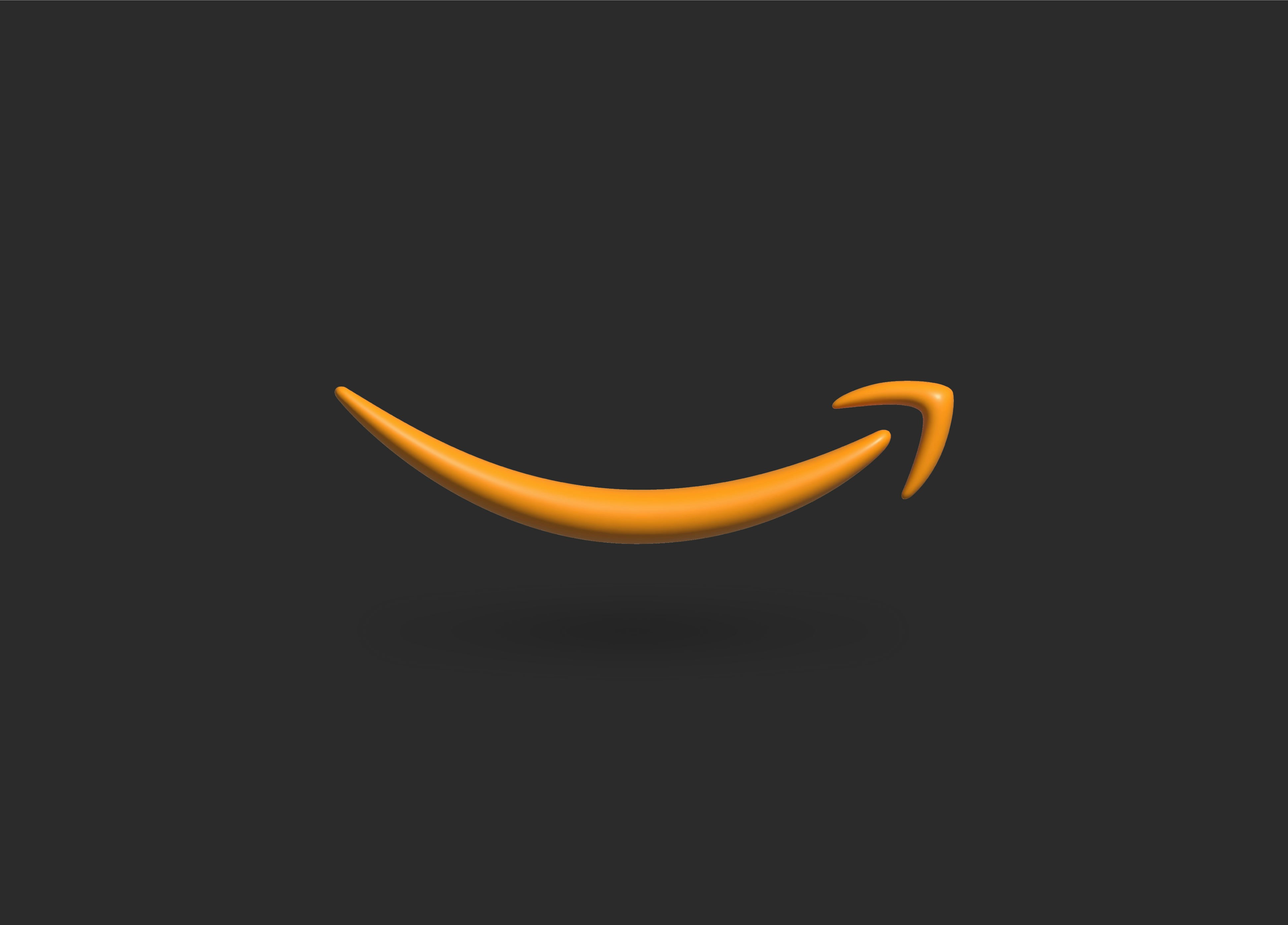

Back to Page
Amazon Tips
Fight Off The Fakers On Your Listing With Our Anti-Counterfeit Tips

Aug 4, 2020
To say that Amazon has a little bit of counterfeit issues will be an understatement. The e-commerce mogul has, for years, tried to dealt (and failed to deal) with rogue sellers. The company is even facing multiple lawsuits from sellers and some name-brands saying it has not done enough to prevent phony products from being listed on its website. The problem has gotten to the point where Trump's government has placed five of Amazon's foreign websites into White House's annual "notorious markets" list. Amazon, in its defense, has said that it invests a substantial amount of its resources to prevent fake products from being sold on the marketplace. Here are some of the more recent attempts made by Amazon to stop the imposters from wreaking havoc on the marketplace:
From September 1, it will be mandatory for the sellers to make their name and business address public
Amazon had video-called a handful of sellers to confirm their authenticity
Recently Amazon launched the Counterfeit Crimes Unit to fight the knockoffs gaming the Amazon system
Last year Amazon introduced Project Zero which allowed sellers to report and stop forge sellers on their listings
In 2019, Amazon spent about $500 million on tracking down fraudulent sellers and closed over 6 billion listings and 2 million accounts
Although the retail giant has left no stone unturned in fighting the bogus sellers, it seems that there has been no visible difference. With time, the counterfeits are getting smarter. Shut down one store of counterfeits and they will simply create a new account and new store, all thanks to the low barrier of entry for the sellers. Even Amazon's own listings are getting hijacked by imposters! It's also difficult for the shoppers to identify whether they are getting the newly launched iPhone 11 or a China knockout. So it's us, the sellers who have to take up all the beating because after all when the customer leaves a negative review saying the product is fake, we are the ones who will face the loss of thousands of dollars of potential sales.
How is your listing vulnerable?
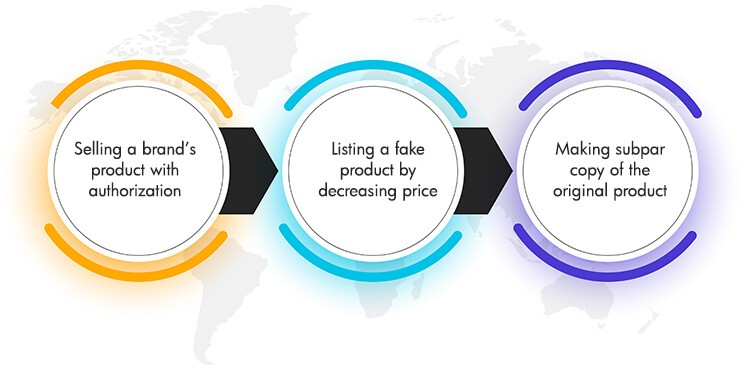
Unauthorized sellers sell a brand's product without any authorization from the brand itself. But that's not all. They don't follow the brand's guidelines or quality control specs and sell expired, used, or damaged products as new. This is especially a problem for health, beauty and consumable products.
Malicious sellers list their products on top seller's listings by decreasing their price. When customers buy a product and find that it's fake, they report the listing to Amazon and Amazon without double-checking the seller can block your listing, which can take away sales from the original seller.
In some cases, copycat sellers make sub-par fakes of the original product without adhering to the safety standards. As a result, the brand's value and reputation are completely shattered. This has already happened to name brands like Nike, Apple and Sephora.
Fortunately, there are some proactive measures you can take to identify and fight off the fakers on your listing:
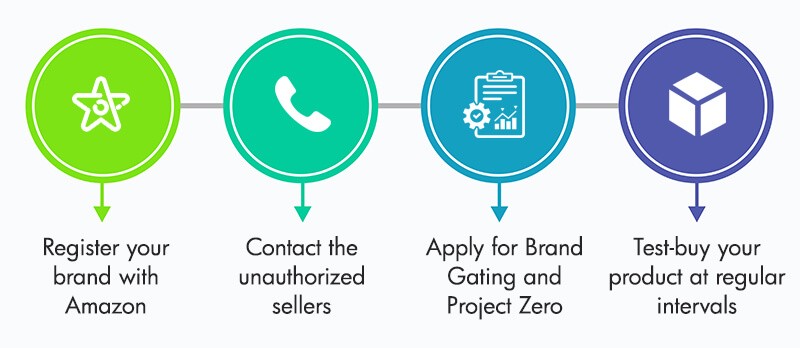
Tip #1: Register your brand with Amazon Brand Registry Service

Brand registry is the best and a sure-shot way to fight counterfeits. From the moment you register your brand, you can obtain greater control of your brand's identity plus a 24/7 direct communication with the retail giant. You will also get access to a variety of tools that can help you eliminate and report any copyright violations. Also, it's no secret that Amazon favors a brand-registered seller more than the rest. While registering your brand with Amazon, you need to submit your logo, trademark, country of origin, catalog and more. Amazon will use this information to check against the fake sellers who are violating intellectual properties (IP). If the seller is not able to prove its legitimacy, Amazon shuts down their account and listing.
Tip #2: Contact the unauthorized sellers
Find their public seller information, ask your Amazon sales expert to reach out to them outside Amazon, or via Amazon messages and tell them you are going to report them to Amazon. Most of the time, this freaks them out and they will remove their listing from your page. If they are smart enough to dodge your question, ask them for invoices or anything that can reveal a gap in their distribution channel. The process will become easier if you have followed the first suggestion given by us i.e., register your brand with Amazon.
Tip #3: Apply for Brand Gating and Project Zero
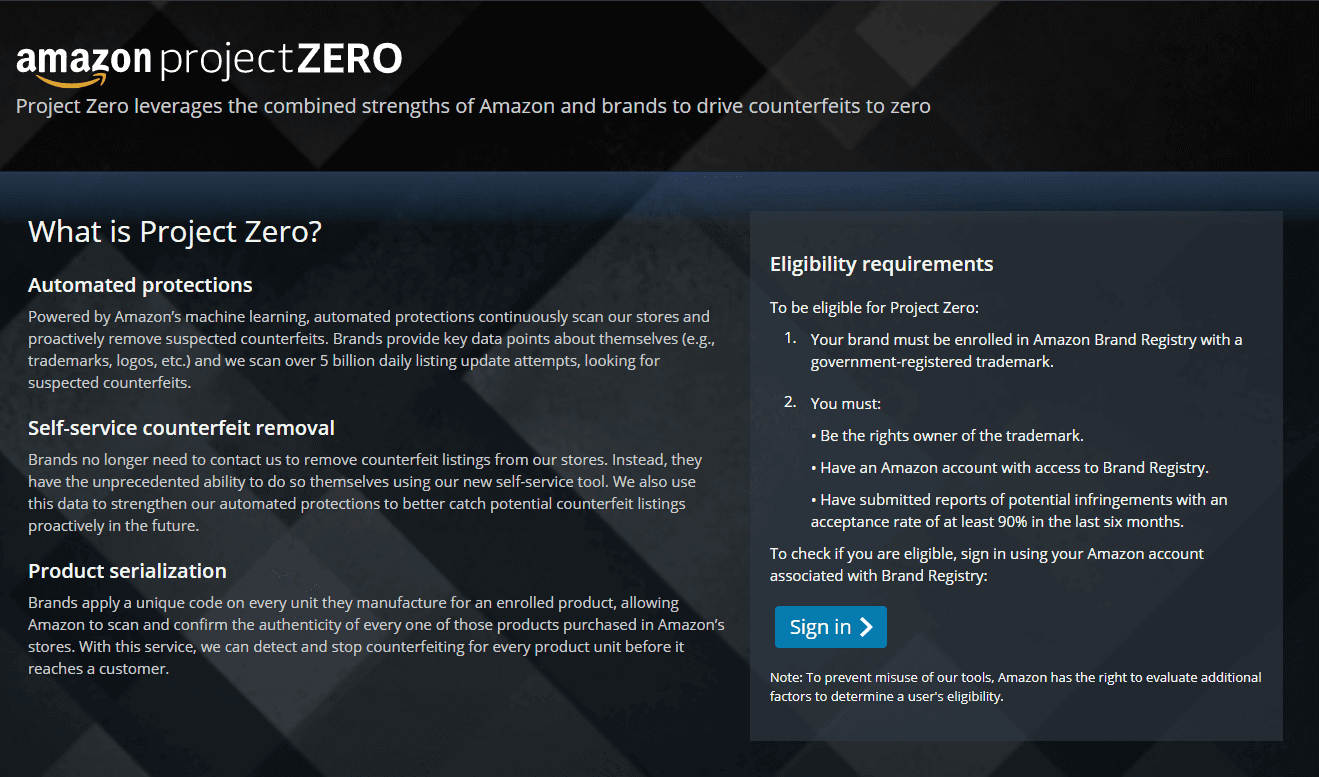
If your brand substantially faces counterfeits, we recommend registering yourself for programs such as Brand Gating and Project Zero. Brand Gating is a process in which 3rd party sellers wanting to sell branded products will have to fulfill certain criteria set by Amazon. This has made a huge difference in preventing the rogue sellers from entering your arena. Project Zero gives brands the power to remove counterfeit items on their own without contacting Amazon. Both of them have greatly helped brands secure their listings, products and reputation. Please note that both the programs are invite-only and are available only to the sellers whose brand is registered with Amazon.
Tip #4: Test-buy your product at regular intervals
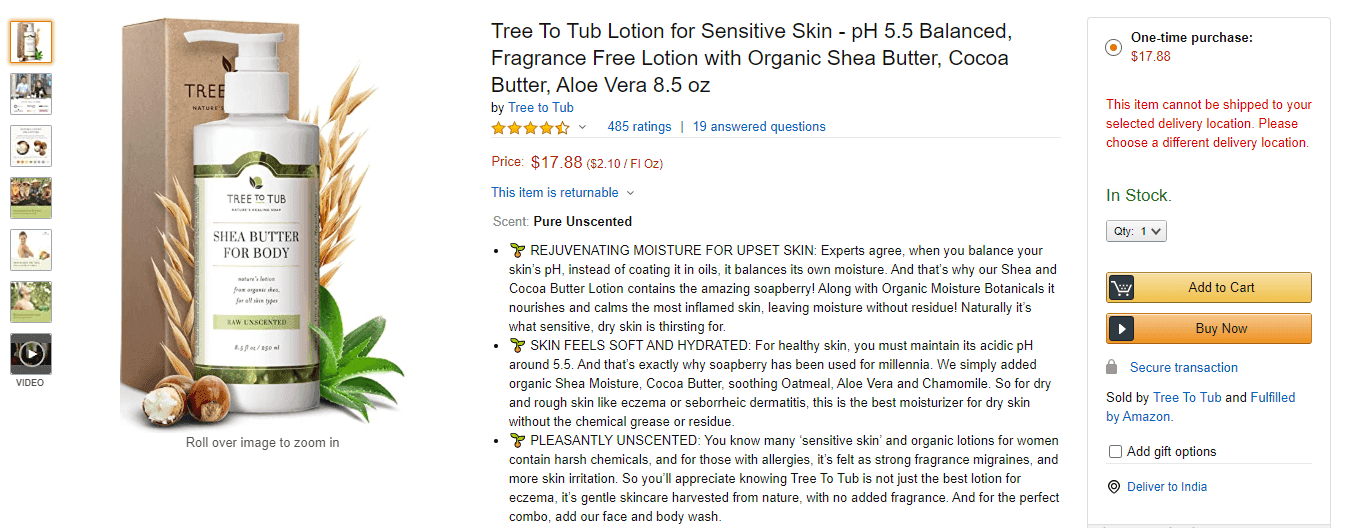
This is another proactive way to identify and remove the counterfeits on your listings before the customer knows. A test buy is when a brand purchases the product from the listing just to identify whether it's a counterfeit or not. This is what Amazon will ask you to do if you file a complaint against the fake sellers. So before opening a case with Amazon, buy the product from your listing and check whether the product shoppers are getting is original or not. If you find that the product you bought is fake, you can file an A-Z claim with Amazon. Click a picture of the product side by side with the real item and show your seller support executive that the product is a fraud.
Final Thoughts:
Protecting your brand from bad actors requires a proactive approach. Following the above tips from an Amazon Seller Central Expert will help you take back control of your brand on Amazon and protect both your reputation and your shoppers from buying fake products. However, if you are too busy to keep a check on every listing, you sell on Amazon, partner with an expert Amazon seller consulting agency like eStore Factory. A dedicated Amazon consultant from our team will proactively work on your account to make sure no malicious seller is leeching off your share or decreasing your brand’s reputation.
To say that Amazon has a little bit of counterfeit issues will be an understatement. The e-commerce mogul has, for years, tried to dealt (and failed to deal) with rogue sellers. The company is even facing multiple lawsuits from sellers and some name-brands saying it has not done enough to prevent phony products from being listed on its website. The problem has gotten to the point where Trump's government has placed five of Amazon's foreign websites into White House's annual "notorious markets" list. Amazon, in its defense, has said that it invests a substantial amount of its resources to prevent fake products from being sold on the marketplace. Here are some of the more recent attempts made by Amazon to stop the imposters from wreaking havoc on the marketplace:
From September 1, it will be mandatory for the sellers to make their name and business address public
Amazon had video-called a handful of sellers to confirm their authenticity
Recently Amazon launched the Counterfeit Crimes Unit to fight the knockoffs gaming the Amazon system
Last year Amazon introduced Project Zero which allowed sellers to report and stop forge sellers on their listings
In 2019, Amazon spent about $500 million on tracking down fraudulent sellers and closed over 6 billion listings and 2 million accounts
Although the retail giant has left no stone unturned in fighting the bogus sellers, it seems that there has been no visible difference. With time, the counterfeits are getting smarter. Shut down one store of counterfeits and they will simply create a new account and new store, all thanks to the low barrier of entry for the sellers. Even Amazon's own listings are getting hijacked by imposters! It's also difficult for the shoppers to identify whether they are getting the newly launched iPhone 11 or a China knockout. So it's us, the sellers who have to take up all the beating because after all when the customer leaves a negative review saying the product is fake, we are the ones who will face the loss of thousands of dollars of potential sales.
How is your listing vulnerable?

Unauthorized sellers sell a brand's product without any authorization from the brand itself. But that's not all. They don't follow the brand's guidelines or quality control specs and sell expired, used, or damaged products as new. This is especially a problem for health, beauty and consumable products.
Malicious sellers list their products on top seller's listings by decreasing their price. When customers buy a product and find that it's fake, they report the listing to Amazon and Amazon without double-checking the seller can block your listing, which can take away sales from the original seller.
In some cases, copycat sellers make sub-par fakes of the original product without adhering to the safety standards. As a result, the brand's value and reputation are completely shattered. This has already happened to name brands like Nike, Apple and Sephora.
Fortunately, there are some proactive measures you can take to identify and fight off the fakers on your listing:

Tip #1: Register your brand with Amazon Brand Registry Service

Brand registry is the best and a sure-shot way to fight counterfeits. From the moment you register your brand, you can obtain greater control of your brand's identity plus a 24/7 direct communication with the retail giant. You will also get access to a variety of tools that can help you eliminate and report any copyright violations. Also, it's no secret that Amazon favors a brand-registered seller more than the rest. While registering your brand with Amazon, you need to submit your logo, trademark, country of origin, catalog and more. Amazon will use this information to check against the fake sellers who are violating intellectual properties (IP). If the seller is not able to prove its legitimacy, Amazon shuts down their account and listing.
Tip #2: Contact the unauthorized sellers
Find their public seller information, ask your Amazon sales expert to reach out to them outside Amazon, or via Amazon messages and tell them you are going to report them to Amazon. Most of the time, this freaks them out and they will remove their listing from your page. If they are smart enough to dodge your question, ask them for invoices or anything that can reveal a gap in their distribution channel. The process will become easier if you have followed the first suggestion given by us i.e., register your brand with Amazon.
Tip #3: Apply for Brand Gating and Project Zero

If your brand substantially faces counterfeits, we recommend registering yourself for programs such as Brand Gating and Project Zero. Brand Gating is a process in which 3rd party sellers wanting to sell branded products will have to fulfill certain criteria set by Amazon. This has made a huge difference in preventing the rogue sellers from entering your arena. Project Zero gives brands the power to remove counterfeit items on their own without contacting Amazon. Both of them have greatly helped brands secure their listings, products and reputation. Please note that both the programs are invite-only and are available only to the sellers whose brand is registered with Amazon.
Tip #4: Test-buy your product at regular intervals

This is another proactive way to identify and remove the counterfeits on your listings before the customer knows. A test buy is when a brand purchases the product from the listing just to identify whether it's a counterfeit or not. This is what Amazon will ask you to do if you file a complaint against the fake sellers. So before opening a case with Amazon, buy the product from your listing and check whether the product shoppers are getting is original or not. If you find that the product you bought is fake, you can file an A-Z claim with Amazon. Click a picture of the product side by side with the real item and show your seller support executive that the product is a fraud.
Final Thoughts:
Protecting your brand from bad actors requires a proactive approach. Following the above tips from an Amazon Seller Central Expert will help you take back control of your brand on Amazon and protect both your reputation and your shoppers from buying fake products. However, if you are too busy to keep a check on every listing, you sell on Amazon, partner with an expert Amazon seller consulting agency like eStore Factory. A dedicated Amazon consultant from our team will proactively work on your account to make sure no malicious seller is leeching off your share or decreasing your brand’s reputation.
To say that Amazon has a little bit of counterfeit issues will be an understatement. The e-commerce mogul has, for years, tried to dealt (and failed to deal) with rogue sellers. The company is even facing multiple lawsuits from sellers and some name-brands saying it has not done enough to prevent phony products from being listed on its website. The problem has gotten to the point where Trump's government has placed five of Amazon's foreign websites into White House's annual "notorious markets" list. Amazon, in its defense, has said that it invests a substantial amount of its resources to prevent fake products from being sold on the marketplace. Here are some of the more recent attempts made by Amazon to stop the imposters from wreaking havoc on the marketplace:
From September 1, it will be mandatory for the sellers to make their name and business address public
Amazon had video-called a handful of sellers to confirm their authenticity
Recently Amazon launched the Counterfeit Crimes Unit to fight the knockoffs gaming the Amazon system
Last year Amazon introduced Project Zero which allowed sellers to report and stop forge sellers on their listings
In 2019, Amazon spent about $500 million on tracking down fraudulent sellers and closed over 6 billion listings and 2 million accounts
Although the retail giant has left no stone unturned in fighting the bogus sellers, it seems that there has been no visible difference. With time, the counterfeits are getting smarter. Shut down one store of counterfeits and they will simply create a new account and new store, all thanks to the low barrier of entry for the sellers. Even Amazon's own listings are getting hijacked by imposters! It's also difficult for the shoppers to identify whether they are getting the newly launched iPhone 11 or a China knockout. So it's us, the sellers who have to take up all the beating because after all when the customer leaves a negative review saying the product is fake, we are the ones who will face the loss of thousands of dollars of potential sales.
How is your listing vulnerable?

Unauthorized sellers sell a brand's product without any authorization from the brand itself. But that's not all. They don't follow the brand's guidelines or quality control specs and sell expired, used, or damaged products as new. This is especially a problem for health, beauty and consumable products.
Malicious sellers list their products on top seller's listings by decreasing their price. When customers buy a product and find that it's fake, they report the listing to Amazon and Amazon without double-checking the seller can block your listing, which can take away sales from the original seller.
In some cases, copycat sellers make sub-par fakes of the original product without adhering to the safety standards. As a result, the brand's value and reputation are completely shattered. This has already happened to name brands like Nike, Apple and Sephora.
Fortunately, there are some proactive measures you can take to identify and fight off the fakers on your listing:

Tip #1: Register your brand with Amazon Brand Registry Service

Brand registry is the best and a sure-shot way to fight counterfeits. From the moment you register your brand, you can obtain greater control of your brand's identity plus a 24/7 direct communication with the retail giant. You will also get access to a variety of tools that can help you eliminate and report any copyright violations. Also, it's no secret that Amazon favors a brand-registered seller more than the rest. While registering your brand with Amazon, you need to submit your logo, trademark, country of origin, catalog and more. Amazon will use this information to check against the fake sellers who are violating intellectual properties (IP). If the seller is not able to prove its legitimacy, Amazon shuts down their account and listing.
Tip #2: Contact the unauthorized sellers
Find their public seller information, ask your Amazon sales expert to reach out to them outside Amazon, or via Amazon messages and tell them you are going to report them to Amazon. Most of the time, this freaks them out and they will remove their listing from your page. If they are smart enough to dodge your question, ask them for invoices or anything that can reveal a gap in their distribution channel. The process will become easier if you have followed the first suggestion given by us i.e., register your brand with Amazon.
Tip #3: Apply for Brand Gating and Project Zero

If your brand substantially faces counterfeits, we recommend registering yourself for programs such as Brand Gating and Project Zero. Brand Gating is a process in which 3rd party sellers wanting to sell branded products will have to fulfill certain criteria set by Amazon. This has made a huge difference in preventing the rogue sellers from entering your arena. Project Zero gives brands the power to remove counterfeit items on their own without contacting Amazon. Both of them have greatly helped brands secure their listings, products and reputation. Please note that both the programs are invite-only and are available only to the sellers whose brand is registered with Amazon.
Tip #4: Test-buy your product at regular intervals

This is another proactive way to identify and remove the counterfeits on your listings before the customer knows. A test buy is when a brand purchases the product from the listing just to identify whether it's a counterfeit or not. This is what Amazon will ask you to do if you file a complaint against the fake sellers. So before opening a case with Amazon, buy the product from your listing and check whether the product shoppers are getting is original or not. If you find that the product you bought is fake, you can file an A-Z claim with Amazon. Click a picture of the product side by side with the real item and show your seller support executive that the product is a fraud.
Final Thoughts:
Protecting your brand from bad actors requires a proactive approach. Following the above tips from an Amazon Seller Central Expert will help you take back control of your brand on Amazon and protect both your reputation and your shoppers from buying fake products. However, if you are too busy to keep a check on every listing, you sell on Amazon, partner with an expert Amazon seller consulting agency like eStore Factory. A dedicated Amazon consultant from our team will proactively work on your account to make sure no malicious seller is leeching off your share or decreasing your brand’s reputation.









